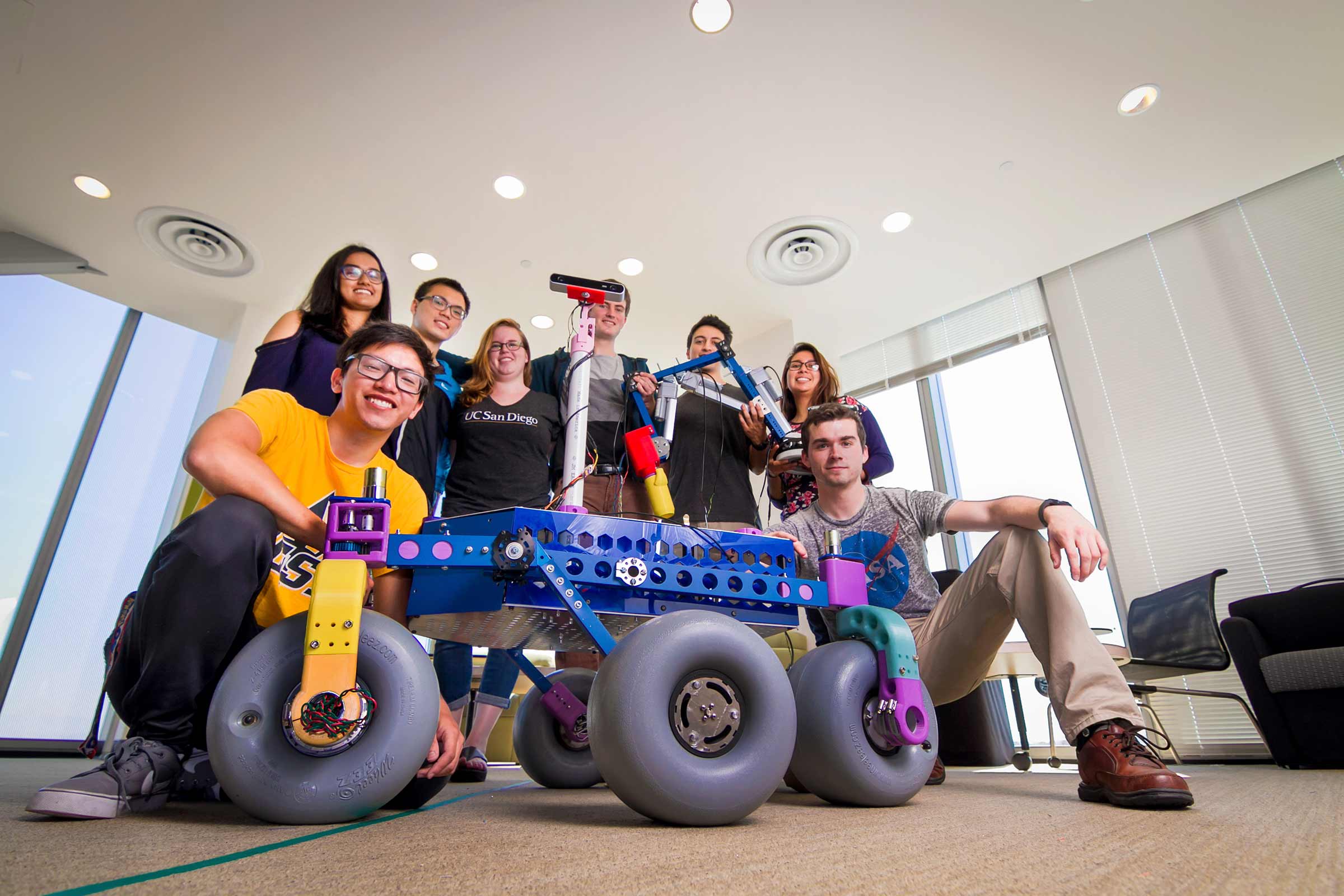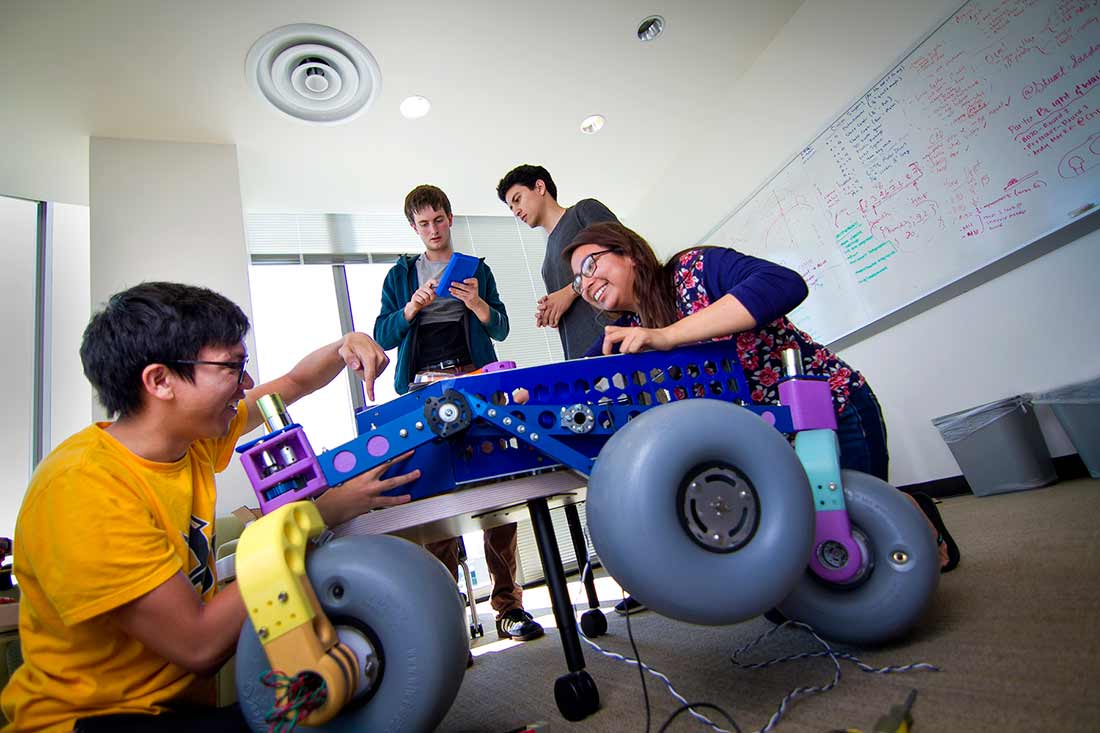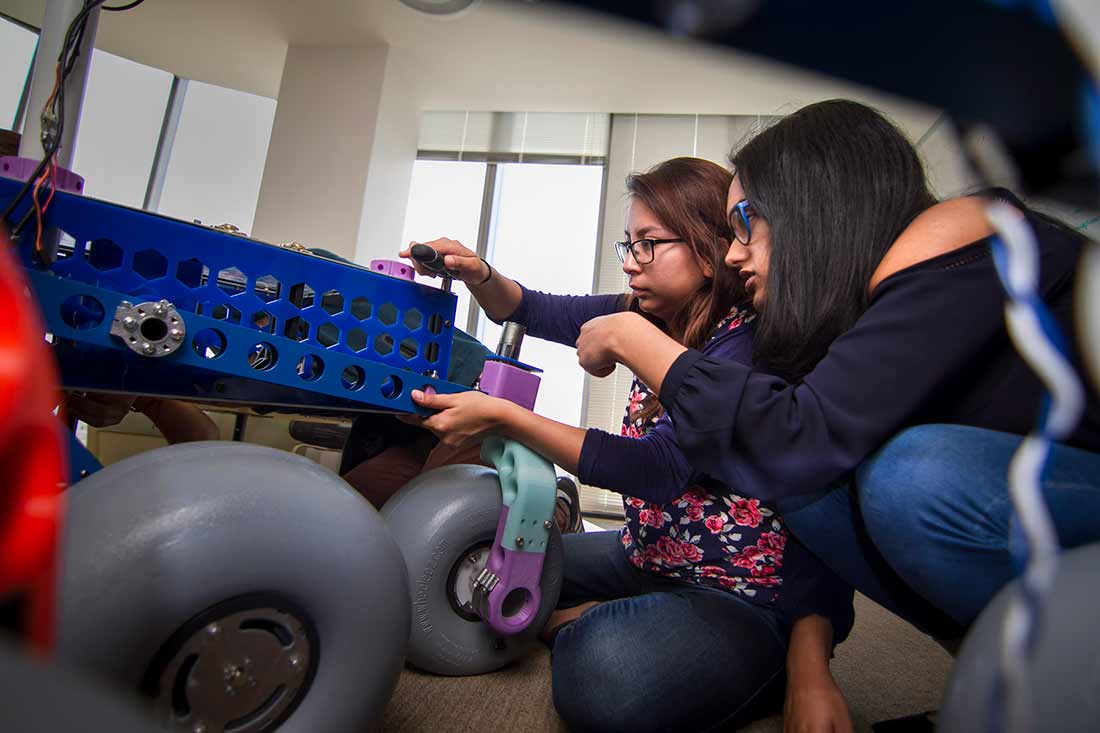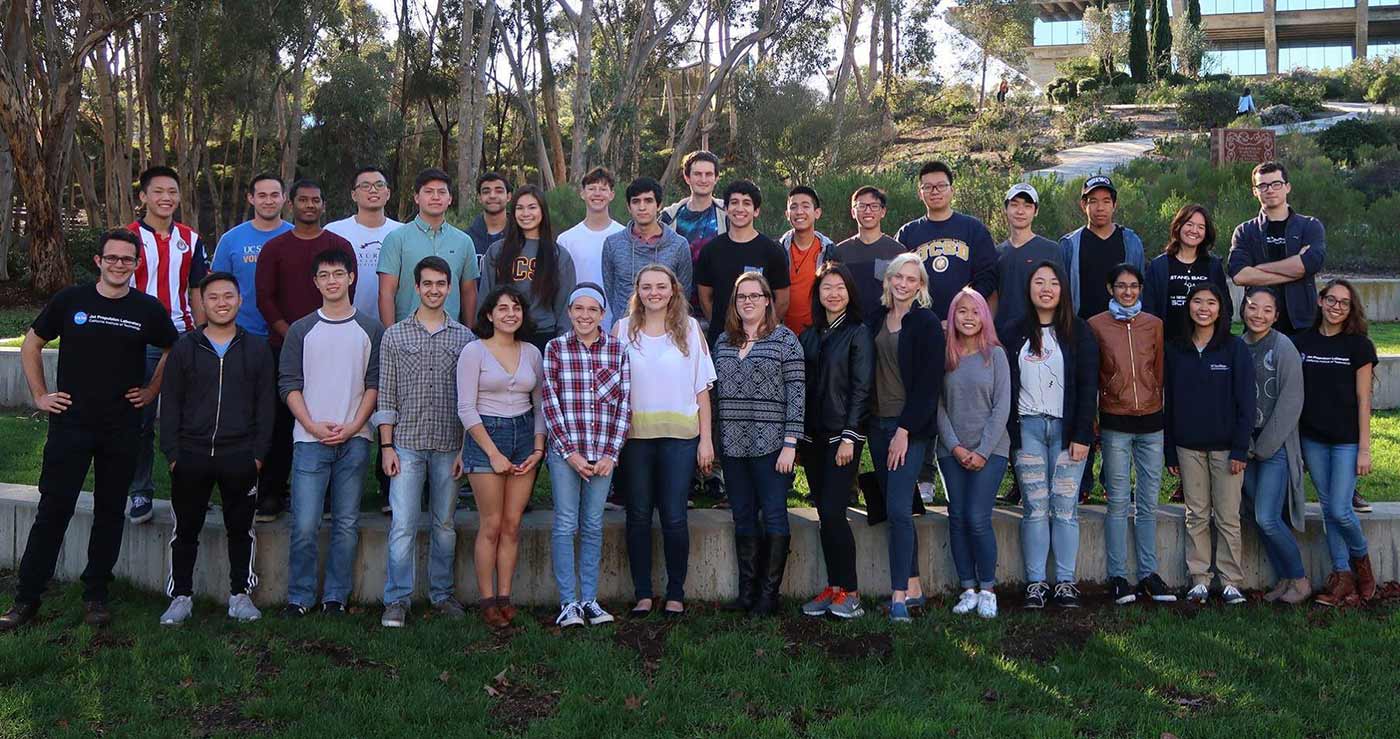
By:
- Deborah L Jude
- Isabelle Yan
Published Date
By:
- Deborah L Jude
- Isabelle Yan
Share This:
A Race to Build the Smartest Rover
Engineering students to compete in Mars Rover Challenge

A team of UC San Diego engineering students, called Yonder Dynamics, is part of a race to build the next generation of Mars rovers. Photos by Erika Johnson/UC San Diego Communications
The exploration of Martian soils began nearly two decades ago with the successful landing of an automobile-sized, one-ton robot on Mars. Now, students at UC San Diego are working to develop the next generation of Mars rovers.
Their semi-autonomous robot is one of just 36 that made it to the final round of the 2017 University Rover Challenge, an international robotics competition for college students put on by The Mars Society. The team, called Yonder Dynamics, is the first UC San Diego team to compete in the challenge, and the only UC team to make it to the final round of competition this year.

The students hope to exceed the expectations of the competition and incorporate autonomy into as many of the tasks as possible.
“Yonder Dynamics started out as a discussion about the future of Mars rovers among friends, but quickly turned into a multi-disciplinary effort to develop a highly mobile and autonomous planetary rover,” said Kirk Hutchison, third year history major, who started the team in Fall 2015, along with now alumnus Alex Smith (BS ‘16, Computer Science).
The University Rover Challenge consists of four tasks that involve soil testing, traversing difficult terrain, and assisting astronauts. While only one task--the newly added Autonomous Traversal Task--requires autonomy, Yonder Dynamics hopes to go beyond that expectation and incorporate autonomy into as many of the tasks as possible.
According to Smith, the robots currently trawling the Martian terrain are feats of human ingenuity, but still largely restricted in their mobility and independence.
“Kirk and I believed that an injection of the most recent hardware could revolutionize planetary exploration,” said Smith. “Not only would it allow for fully autonomous drilling, movement, and risk assessment, but it would also allow for continuous scientific experimentation and data collection, and the reduction of the communication delay between Earth and Mars."
The Yonder Dynamics rover will be programmed to recognize various objects and avoid obstacles in order to determine the best path for itself throughout the competition.
Smith and Hutchinson said their goal for forming Yonder Dynamics was not truly about winning a competition—or even building a rover.
“It was about self-discovery,” said Smith. “In dedicating ourselves to this project, we’ve discovered that our hands and minds are more capable than we believed.”
Yonder Dynamics is now a team of more than 40 members, including students from non-engineering majors.

The Yonder Dynamics rover will be programmed to recognize various objects and avoid obstacles in order to determine the best path for itself throughout the competition.
“We’re also proud to say that Yonder Dynamics is currently about 40 percent women, several of whom are team leads of the project,” said Hutchison.
By some counts, women account for only 24 percent of the workforce in STEM (science, technology, engineering, and mathematics).
"Having worked in a predominantly male environment, it's amazing to work with a group of strong, intelligent women,” said Megan Elliott, third year mechanical engineering major and the team’s Chassis Lead. “I think it's important for women of all ages to have role models who are women in STEM leadership positions, and I hope to be one of them. Through my role in Yonder Dynamics, I hope to spread the message to the next generation of women in STEM that they never need to question their abilities just because they're female."
Third year environmental engineering major Hannah Munguia-Flores agrees. “Student organizations [have the responsibility to] actively recruit and encourage women involvement in their projects,” she added. Munguia-Flores is the Instruments Lead for the team.
The last stage of the challenge takes place June 1-3 at the Mars Desert Research Station in Utah. The winning team will receive a cash prize and a trip to be present at the International Mars Society Convention.

Yonder Dynamics is a team of more than 40 members, including students from non-engineering majors.
Leading up to competition, Yonder Dynamics will hold a Simulation Day on Saturday, May 27, 2017 from 9:30 AM to 6:30 PM, at the Torrey Pines Gliderport. Throughout the day, the students will be putting their robot through a makeshift version of the competition’s tasks. The event is open to the public.
Yonder Dynamics is sponsored by Thorlabs, Protocase, Qualcomm Institute, Meter Environment, ROHM Semiconductor, Cubic, the UC San Diego Jacobs School of Engineering, and the UC San Diego Division of Biological Sciences.
Share This:
You May Also Like
Stay in the Know
Keep up with all the latest from UC San Diego. Subscribe to the newsletter today.


